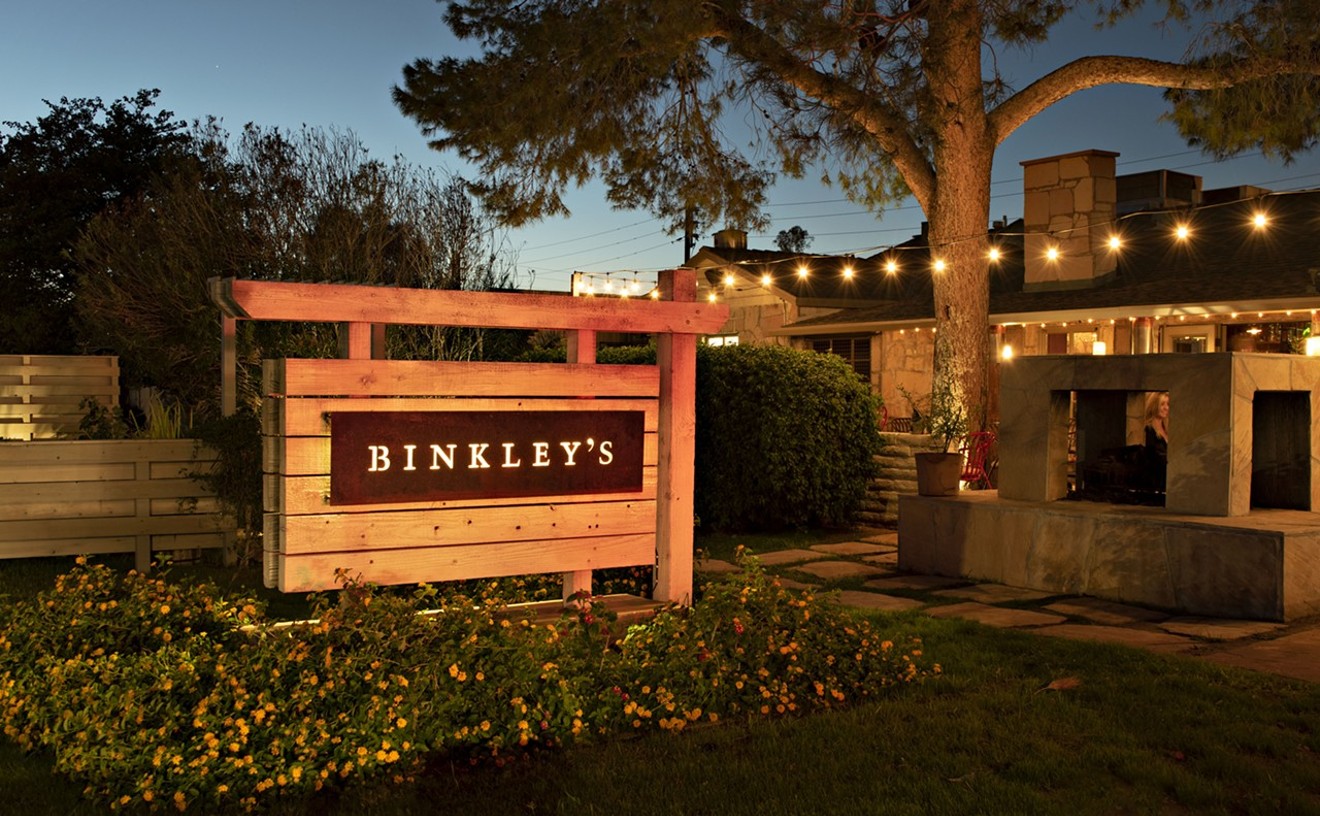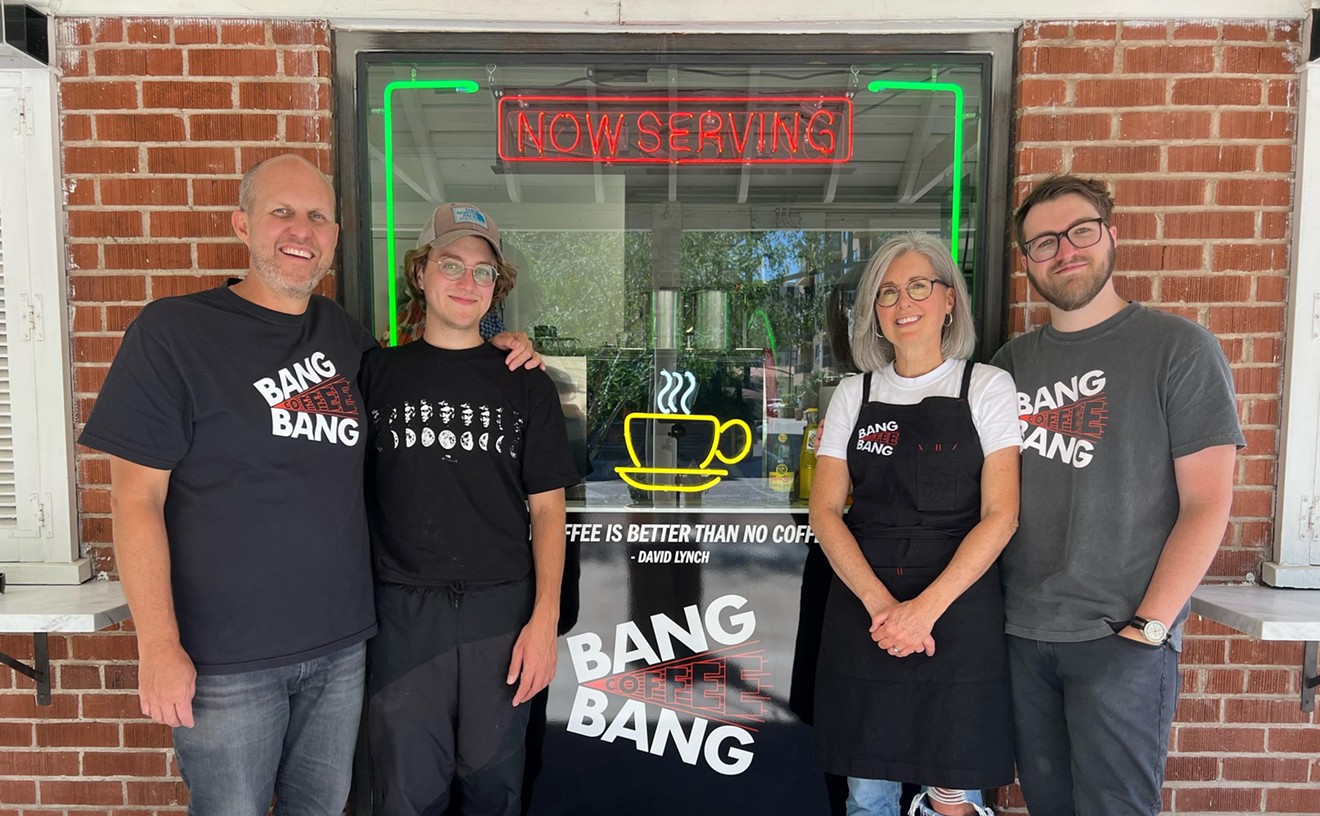This piece is the start of a new series called Roast Profiles, in which we meet the local behind-the-scenes folks who make Phoenix coffee taste so amazing. For this week’s installment, we chatted with Matador Coffee’s founder and roaster Mario Martusciello about his approach to the art and craft of roasting coffee.
Matador Coffee came onto the Phoenix coffee scene in 2005. What was originally a North Phoenix brick-and-mortar cafe featuring house-roasted beans has repeatedly evolved and transformed. In 2014, Martusciello sold the cafe to focus on expanding Matador's wholesale roasting capacities, and he's now working on opening a facility in Flagstaff. Matador Coffee's rich, full-bodied beans are available at a number of metro Phoenix shops including 32 Shea and The Refuge. We caught up with Martusciello to find out more about his background and how he feels Phoenix's coffee industry has changed over the past ten years.
How did you end up as a coffee roaster?
I started in Phoenix in the early ‘90s. I started as a barista. I was a musician, and by way of music, I wound up moving to Seattle in the mid-’90s. I continued with coffee there, I was playing music, I pursued both as my life’s work. By the time I was thirty I was managing people’s shops in Seattle and was getting away from taking music so seriously, so I decided to open my own café up there. We opened in 2000. I ran that for a few years, then started to really pay attention [to roasting]. I became friends with the guy that was my roaster, and realized that roasting was the backbone of the coffee business.
Then the economy exploded [in Phoenix]. I was getting a little older, my parents were getting a little older, and it was an opportune time to take advantage of the housing bubble down here. I thought, “You know, there are a million coffee roasters in Seattle, but only a handful down here.” So in 2005 I came back, and we started Matador.
What’s your approach to roasting – is it more intuitive or more technical?
I think we’re definitely intuitive and technical – I wouldn’t say it’s scientific. We work with the actual beans we’re using and let them talk to us. Every bean is different, every batch we get in is different, you have to play with them.
How would you describe Matador’s roasting style?
We let the beans dictate what the best profile is for them based on our palates and what we like in coffee. From roaster to roaster, I think each guy you’ll talk to, they all have kind of their signature thing they like to focus on – some are more light roasted, acidic. We don’t necessarily follow that trend. We stick with a more traditional Italian roasting style. We go for a sweeter flavor profile and a bigger body in the coffee — lower acidity. Not necessarily really light or dark, but just where the best end result is for the beans is really where we focus.
What makes roasting in Phoenix different from roasting elsewhere?
For one, the weather. The summers create a big challenge as far as volume, because you have huge fluctuations between summer business and winter business. Most other regions don’t really suffer as much of a wave pattern as we do; they’re more steady year round. So developing our wholesale business is challenging because people that are new to the business can struggle to get on their feet. We do a lot of consulting. When I first came back in 2005, nobody was really supporting local. The vast majority of people ten years ago were stuck on the chains, chains were still running the show in Phoenix. Now it’s gone the other way, where everything is local. But along with that there are a lot more roasters and coffee shops and competition coming in. Coffee is an incredibly competitive business, when you’re dealing with accounts in Arizona, specifically the southern part of the state where it’s warmer, you have a smaller volume of traffic to coffee shops.
We’ve had a lot of positive growth – in the last few years we’ve seen a lot of growth in our business, a lot more businesses are opening because the economy is getting back on its feet. We’re seeing more opportunities for locally roasted coffee and coffee culture in Phoenix.
What’s your favorite coffee experience to date? Is there a particular bean you harken back to and think, “Wow, that was incredible!”?
I didn’t ever have a “wow” moment. My parents owned a business when I was a little kid and I kind of took on the job of being the coffee guy in their shop. I always liked it – even as a child I liked the taste of it. My real “wow” moment came when I got my first roaster and started tasting the coffee coming right out of it. It came after the fact when I was already in the game. That’s when I started seeing how far I could take it. It’s been part of my adult life the whole time. I’ve never done anything other than coffee as an adult.
For more information about the coffee shop and roaster visit the Matador Coffee website.
Editor's Note: This post has been edited from its original version.
Follow Chow Bella on Facebook and Twitter and Pinterest.
[
{
"name": "Air - MediumRectangle - Inline Content - Mobile Display Size",
"component": "18478561",
"insertPoint": "2",
"requiredCountToDisplay": "2"
},{
"name": "Editor Picks",
"component": "16759093",
"insertPoint": "4",
"requiredCountToDisplay": "1"
},{
"name": "Inline Links",
"component": "17980324",
"insertPoint": "8th",
"startingPoint": 8,
"requiredCountToDisplay": "7",
"maxInsertions": 25
},{
"name": "Air - MediumRectangle - Combo - Inline Content",
"component": "16759092",
"insertPoint": "8th",
"startingPoint": 8,
"requiredCountToDisplay": "7",
"maxInsertions": 25
},{
"name": "Inline Links",
"component": "17980324",
"insertPoint": "8th",
"startingPoint": 12,
"requiredCountToDisplay": "11",
"maxInsertions": 24
},{
"name": "Air - Leaderboard Tower - Combo - Inline Content",
"component": "16759094",
"insertPoint": "8th",
"startingPoint": 12,
"requiredCountToDisplay": "11",
"maxInsertions": 24
}
]










